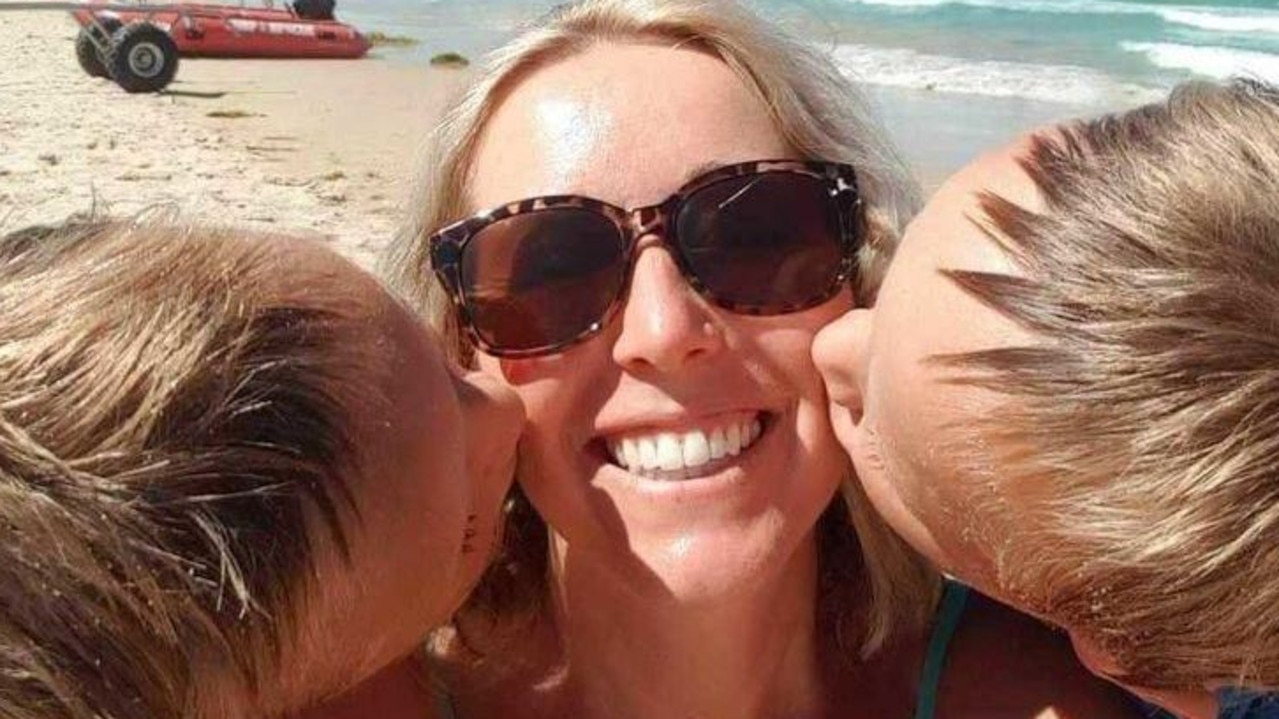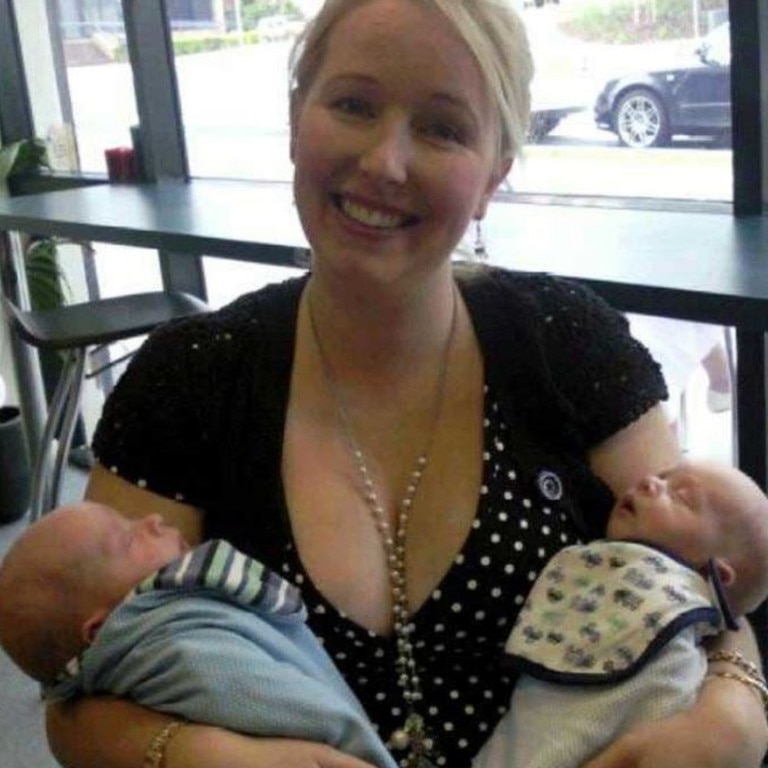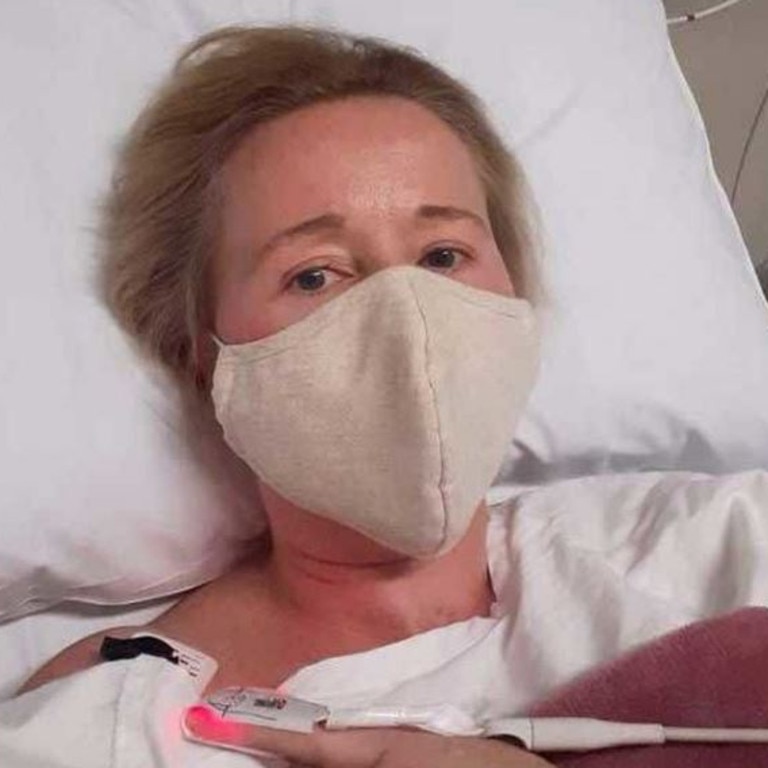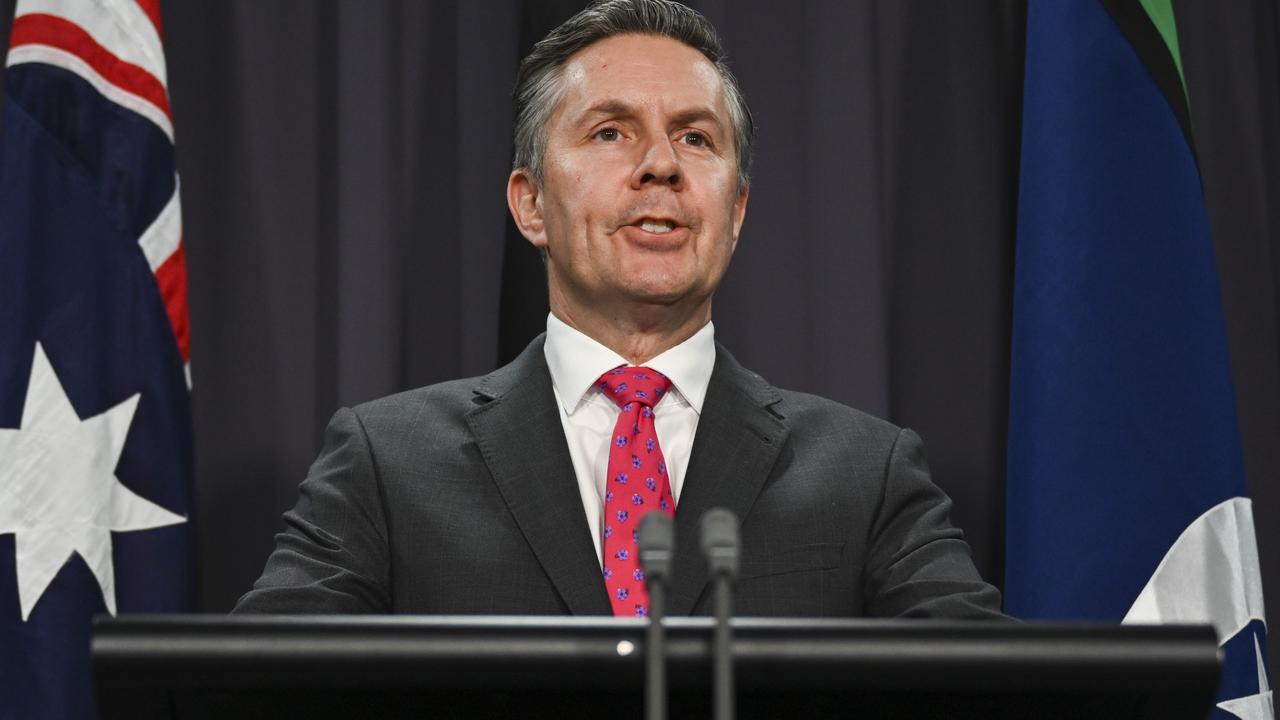How mum’s common female issue became ‘terminal’
A NSW mum has revealed how her common female health issue became ‘terminal’ after she claims she was ignored by doctors.
An Australian mum has shared how her common female problem has turned “terminal” after allegedly being ignored by doctors for much of her life.
For most of her life, Christie Smith has suffered from endometriosis — a common, painful condition where tissue similar to the lining of the uterus lining grows outside the womb.
The 45-year-old, from Shellharbour, New South Wales, has spent the last five years in bed, suffering from unimaginable and relentless pain.
The mum was diagnosed with endometriosis back in 2005 when she was 26 after she suffered from an almost fatal ectopic pregnancy.
Over the years, her condition grew “worse and worse” and has now been classed as a rare case of “terminal endometriosis”, meaning the tissue has run rampant to such an extent that it can no longer be removed with surgery.
The tissue has spread to Christie’s bladder, bowel, kidneys, liver, diaphragm and even her lungs. She now finds walking and even swallowing or breathing difficult.
The mum claims she was “gaslit” and ignored by doctors for many years. Having struggled with endometriosis in her teens, she struggled for a long time to get a diagnosis.
“I’m probably in bed 23 out of 24 hours because I am in so much pain all the time from the scar tissue and adhesions,” Smith told 9News.
“I tried to get a diagnosis. I suspected that I had endometriosis based on my own research, but the problem with endometriosis is they can’t find it on scans.
“I went through the whole process of getting scans and nothing ever showed up.”
It was her ectopic pregnancy that led doctors to finally diagnose her with the disease. The fallopian tube, where the foetus was growing, was scarred and covered with endometrial tissue.
Along with being diagnosed with endometriosis, she was hit with another blow: she was told she would never be able to have kids naturally.

But thankfully, Christie and her husband were able to have four boys in three years through IVF, including identical twins.
“I was told I wouldn’t ever be able to have children with the remaining tube that was also so badly damaged,” she revealed.
When the couple decided that their family was complete, Christie went to see a gynaecologist about having her uterus removed due to the excruciating symptoms she was continuing to suffer from.
“I was at the point where, when I would get my period, I couldn’t get out of bed for several days,” she said.
“I couldn’t urinate because I couldn’t relax my muscles enough to actually do a wee. To have a bowel movement was so painful I would cry.
“It was just horrible.”
Christie claims that her gynaecologist “dismissed her concerns”, stating that the endometriosis was not significant enough to warrant a surgery.
“Even with the diagnosis, I had it all in writing, he didn’t believe me,” she said.
“He sent me for a CT scan and it showed nothing. He did a pelvic exam and he said, ‘No, nothing feels like it’s tethered.”
The mum said the doctor’s conclusion caused her to second guess herself, despite the agonising pain she was in.

“I actually started questioning myself,” she said.
“I thought maybe I don’t have it anymore, because he told me a lot of women who go through pregnancy, they find it goes into remission.
“So I was kind of gaslit, to the point where I didn’t know whether it was in my head.”
In 2019, she underwent an operation to remove a hernia in her groin. This was when doctors discovered the hernia was caused by an endometrioma, a cyst related to the endometriosis, that had grown through her abdominal muscle and into her inguinal canal.
Christie then saw a new gynaecologist who agreed to remove her uterus at the end of 2019.
However, the planned surgery turned into a seven-and-a-half-hour operation with multiple surgeons involved when it became apparent the endometriosis had spread to almost all of her abdominal organs.
The mum had what can be referred to as “frozen pelvis”, a rare and severe stage of endometriosis where the pelvic organs become fused and stick together.
“My entire bowel had to be resected off the back of my abdomen because it was completely stuck down,” she explained.
“That’s why I was having a lot of pain, because my bowel wasn’t able to function normally.”
The mum’s body is no longer responding to maximum-dose opioid painkillers and has been advised against further surgery due to the risk of complications.
A GoFundMe has been started by a family friend to help Christie access a spa for pain relief and physiotherapy.

“I would like women to be believed when they are in pain,” the mum added.
“If a man had this happen and was in pain like this, no doctor would just say go away and come back in four months and tell me how it feels.
“He would be investigating what is wrong. If it stops you from doing your life, then that’s too much pain.”
News.com.au’s campaign incites major change
Australian women will receive better access to help for the debilitating impacts of endometriosis after the Federal Government announced a massive overhaul of the health system back in May.
The Albanese government announced a $49.1 million investment into tackling the disease, which affects more than a million people nationally.
The move follows news.com.au’s About Bloody Time campaign, launched earlier this year, which called for longer consultations for gynaecologist appointments.
“I was deeply moved by the women who spoke about their experience with endometriosis during the About Bloody Time campaign,” Health Minister Mark Butler said.
“I hope through this announcement today they feel listened to.”
From July 1, 2025, women suffering from the debilitating disease will have longer specialist consultations of 45 minutes or more covered under Medicare.
Previously, an initial gynaecologist appointment received an $81.30 rebate which covered only 10 minutes of a gynaecologist’s time. The result of the small rebate saw patients being crammed into short sessions which barely scratched the surface of their issues.
As of July next year, Medicare will cover $168.60 for an initial appointment, and $84.35 for follow-up appointments, compared to the previous rate of $40.85.

The investment, set aside in the budget, will provide about 430,000 more services to help women across the country with complex gynaecological conditions.
News.com.au launched About Bloody Time on March 1, and smashed its target of 20,000 signatures in less than 30 hours. It hit 55,000 signatures within a week.
The compelling campaign video – which highlighted the wider impact of the disease on sufferers – was viewed 4.4 million times across news.com.au and its TikTok, Instagram and Facebook accounts.
Shortly after launch, every state and territory health minister in the country joined the fight for federal action in a combined show of unity. And, as part of the coverage, a news.com.au survey of more than 1700 sufferers found 54.4 per cent had been dismissed by their health practitioner.
Despite the prevalence of the disease, which is almost on par with the amount of people who have type 1 and 2 diabetes, news.com.au exposed how specialists were ill-equipped to manage pain and Medicare rebates were so low there was no incentive to take time to provide thorough care.
Health experts said the outdated system only incentivised specialists to perform surgeries by offering rebates 200 times more than those applied to consultations – often leading to further surgeries and complications, instead of the exploration of other treatment options.




